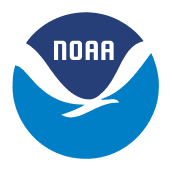GSL Partners with MSU Denver to Host Undergraduate Research Interns

GSL scientists spent part of this spring mentoring five Metropolitan State University at Denver (“MSU Denver”) undergraduate students through an internship program supported by the National Science Foundation (NSF) and the Colorado-Wyoming (CO-WY) Engine.
The internship is funded by the NSF Advanced Sensing and Computation for Environmental Decision-making (ASCEND) Engine in Colorado and Wyoming through its Regional Innovation Engine grant. In it, the students earn credit hours toward their degree by working alongside researchers from NOAA, the Cooperative Institute for Research in the Atmosphere (CIRA), and the Cooperative Institute for Research in Environmental Sciences (CIRES) during the spring semester.

The student projects range from developing mathematical models to simulate the atmosphere, to advancing decision support tools for forecasters. We hope all students had an excellent experience at GSL and wish them well in the future!
Dawson Ash

Bio: I grew up in Estes Park and am a true Colorado native. I’ve had a passion for technology from a young age and am working hard to make a career in the industry. I think the impact of modern software cannot be overstated, and I hope to become a professional front-end developer so I can help make powerful software accessible and usable for everyone.
Mentor: Dmitri Atrash (CIRA at GSL)
Project: Dawson designed and built a prototype dashboard that helps visualize weather-related information in a clear, user-friendly way. His work supports NOAA’s mission by exploring how digital tools can improve decision-making for forecasters and emergency managers.
Gage Gibson

Bio: I’m Gage Gibson, a senior Meteorology major at MSU Denver from Broomfield, CO. I’ve wanted to be a research meteorologist for as long as I can remember, especially if it involves researching convective weather, specifically mesoscale dynamics using numerical weather models and remote sensing. My dream job would be working at a NOAA- or university-backed research organization like GSL, NSSL, CIWRO, etc., to help save life and property with contributions to research to operations.
Mentor: Amanda Back (GSL)
Project: Gage’s project evaluated experimental numerical weather model performance (i.e. how accurate the model was vs. reality and other models) using GSL’s Model Assessment Tool Suite (MATS), and presenting findings to the developers of these experimental models. Gage also classified the storm type of dozens of extreme precipitation events to help train a storm classification machine learning algorithm, and worked toward an advanced MATS user guide to help researchers know how to use the ‘hidden’ and not-so straightforward features of the tool suite. Read more about Gage’s experience in this CO-WY Engine profile.
Alexander Turner

Bio: My name is Alexander Turner, and I am a Senior majoring in meteorology and minoring in math, originally from Las Vegas, Nevada. I aspire to earn my PhD in polar meteorology and dedicate my career to polar meteorology research.
Mentor: Eric James (GSL)
Project: Alexander worked on an evaluation of observed excessive rainfall events in various parts of the country over the last few years. In particular, Alexander created maps of estimated precipitation from the events, and calculated the spatial coverage of precipitation of varying rarity (e.g., 10-year, 50-year, 100-year rainfall event).
Ethan Wiese

Bio: My name is Ethan Wiese, a senior in computer engineering at MSU Denver, and I am originally from Minneapolis, Minnesota. I am an avid fan of skiing and love video games.
Mentor: Guoqing Ge (CIRES at GSL)
Project: Ethan has been working on enhancing the Python-based data assimilation monitor (pyDAmonitor) package for the next generation, experimental Rapid Refresh Forecast System.
Cole Wiley

Bio: My name is Cole Wiley, and I am an undergraduate Professional Meteorology major and Mathematics minor graduating this spring semester from MSU Denver. I grew up in Broomfield, CO, and have developed a fascination with winter weather over mountainous terrain. I plan to start my career as a forecaster but hope to pursue graduate school and eventually a career in atmospheric researc
Mentor: Duane Rosenberg (CIRA at GSL)
Project: Cole conducted simulations of orographic gravity waves to examine the flow of air in different environments. This involved learning parallel computing and data management skills, understanding the basics of dynamical core simulations, and data analysis in the use of computational methods to reinforce key concepts in atmospheric science.
Our Mission
Lead research and directed development through the transition of environmental data, models, products, tools, and services to support commerce, protect life and property, and promote a scientifically literate public.
Research Areas
Organizational Excellence, Earth System Prediction, Advanced Technologies, and Decision Support are the foundation to achieving the GSL Grand Challenge: Deliver actionable global storm-scale prediction and environmental information through advanced technologies to serve society.
Global Systems Laboratory

